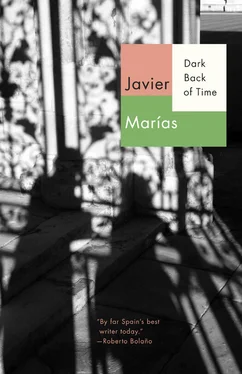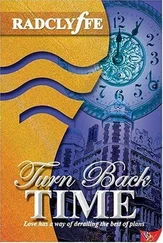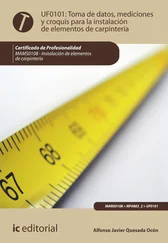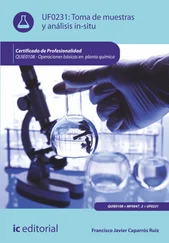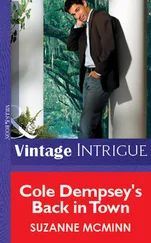“Well, in that case, he can’t be called Del Diestro either,” he ordered, and this second and even more futile demand gave me much to think about. It wasn’t simply that he wanted to get back at me. He was not Del Diestro because he was Rico with all Rico’s attributes, and he wanted to appear in the novel as such, making the distinction. Yet to his mind the name Del Diestro alluded to him, that character could be understood as Rico without in fact being him, as if the precedent of All Souls had impregnated or contaminated him and it would no longer be possible to evade or deny the identification if the character and name were repeated: the proof was that he assumed the authority to prohibit me from using Del Diestro. I had invented Del Diestro, he didn’t belong to Rico, but Rico was taking him over, seizing him. He no longer wanted to be recognized in someone else or to have a replica, he still wanted to figure in a fiction but not as fiction: as an inroad of reality into fiction — an intruder. Perhaps he was now experiencing the fear of being entirely fictitious, of returning to and forever inhabiting a terrain in which all is immutable to the end of time or of literature. In life, you can compensate or fluctuate or rectify, as long as the story hasn’t yet ended — either in death, which arrives to bring everything to a close, or, above all, in the telling of life and death. What’s attributed to you in a work of fiction, however, has little or no remedy, there’s no debate about it, no amendment. Thus it is written and thus it is repeated, identically, without compassion or hope — this is the story and these are its words — telling the same thing in the same way every time it’s read or leafed through or consulted, just as the action of a painting, once it’s “chosen and frozen,” never moves forward or recedes, and we’ll never see the face of the person who was painted from behind, or the nape of the neck of the one whose face was portrayed, or the hidden side of the one in profile. Thus it is written: the frightful, immemorial threat. I said that what truly brings closure isn’t the end but the recounting of that end, and of what transpired before it, the story of life and death, be they fictional or real, though if the life is fictitious then death isn’t necessary: writing takes its place. Telling the story is what kills, what entombs, what secures and delineates and solidifies our face, profile or nape; being told in a story can be the equivalent of seeing oneself immortalized, for those who believe in that, and, in any case, of being dead; I am burying myself by this writing and in these pages, even if no one reads them; I don’t know what I’m doing or why. (It doesn’t matter if anyone else sees them, it’s enough that I narrate myself a little, my own reading is enough.) Maybe that’s what Professor Rico was intuiting: what I might be doing to him by entombing him in my book.
The name had to be changed and the chapter retyped, and Professor del Diestro of A Heart So White came to be named Professor Villalobos, which was the surname of a grouchy teacher at my school, the Estudio, at number 8 calle de Miguel Angel in Madrid, in the 1970s, just as Del Diestro was chosen because it was the surname of another teacher, this one light-hearted, Carmen García del Diestro, or Señorita Cuqui, as she was known, who wore lots of make-up and smoked incessantly in class, or rather, her cigarettes with their lipstick traces slowly burned down between her fingers as she read the classics to us with theatrical enthusiasm, juggling a heavy bracelet that she would take off, put back on and occasionally throw to the floor, denting them both (bracelet and floor), and attempting a bejeweled balancing act to keep her cigarette’s ashes from falling, though in the end they always did, on her jacket or blouse, when the work she was reading drove her to make some violent gesture, for example when she made a vicious stab into the air or the shoulder of some favorite student — sack of flour, sack of flesh. What a delightful woman, she must be a hundred years old now and she writes me from time to time, with affection and a cigarette in her hand, most often to congratulate me when I publish an article in defense of tobacco.
But the character was already composed out of elements of Rico, or rather of Professor del Diestro, from the previous novel. I didn’t feel capable of changing or giving up much of him so Rico may still be in there somewhere nonetheless — or prowling around outside — though at the end of the chapter I said, to stave off any notion of a resemblance, that when Professor Villalobos “fell into disheartened silence” he looked a little like the actor George Sanders, one of my favorites, whom I once called “the man who seemed not to want anything.” Rico bears no resemblance whatsoever to Sanders. I don’t know if that sufficed to liberate him. Now I’ve spoken of him here, by his name and with his attributes. But this is not a fiction, though it has to be a story.
In the first sentence of this book I said I believed I had still never mistaken — yes, still never , deliberately incorrect — fiction for reality, which doesn’t mean that some retrospective effort on my part is not sometimes required to succeed in avoiding this type of confusion. I want to believe that I’m not much at fault in this; I am not responsible for the fact that certain real people began to behave in real life as if they were characters in All Souls , after it came out, or that a few eminent readers, who can be assumed to have been in full knowledge of the facts, took as valid in reality what was only recounted in a novel full of levity and exaggeration. Particularly notable were the remarks made a few months later by the vice-rector or vice-president or vice-chancellor of Oxford University, who, during a solemn assembly or ceremonious conclave (in which, once again, no ambitious and intrusive professor named Del Diestro or Del Fieltro or Rico had any part), said she was currently reading “a very interesting novel, in order to become better acquainted with and delve into the psychological workings of the Sub-Faculty of Spanish.” Apparently there were murmurs of alarm, slight mockery, and deep and sincere astonishment — no one had been at all aware of the lady’s secret but now presumptive Spanish-language abilities, for my text had yet to be translated into any other language — until my friend Eric Southworth took the liberty of speaking up to suggest to Madame vice-chancellor or vice-president or vice-rector, that, well, if it was her wish to make a close psychological study of the members of the department to which he belonged, it would perhaps be preferable for her to mingle with them personally or have them visited by a group of certified, licensed and officially approved and contracted psychologists, before entrusting so delicate a task to a reading that would surely be “of necessity oblique,”—all said with the characteristic Oxford ambiguity. (“What did you mean by that?” I asked him when he told me about it. “Oh, I don’t know, whatever she decided to take it to mean,” he answered.) “May I, with the utmost respect, remind the distinguished vice-rector,” he went on during that same plenary meeting, “that she has employed a word that is entirely apt and that she should at all times bear in mind? I refer to the word ‘novel.’ And perhaps it would be advisable to bear in mind, as well, that this novel was written by a foreigner,” he added in fun, given that Eric is not exactly the sort to make nationalistic distinctions. As I later learned, the vice-chancellor, after a moment’s consternation, then responded: “Yes, of course, you’re correct, I see your point. A foreigner might wish to malign us, mightn’t he? And all the more so if he is a Continental.” “This particular foreigner, Madame vice-president, is not only a Continental”—Eric played his ace—“he is a Peninsular.” “Yes, I see,” the vice-rector hastily concluded in fear, as if she had just heard an obscene word that had to be tiptoed past at top speed and disposed of without delay. Apparently, two or three of the professors in the cloister or congregation who were at that moment entertaining themselves on the sly with my novel rapidly concealed their copies under their gowns.
Читать дальше
